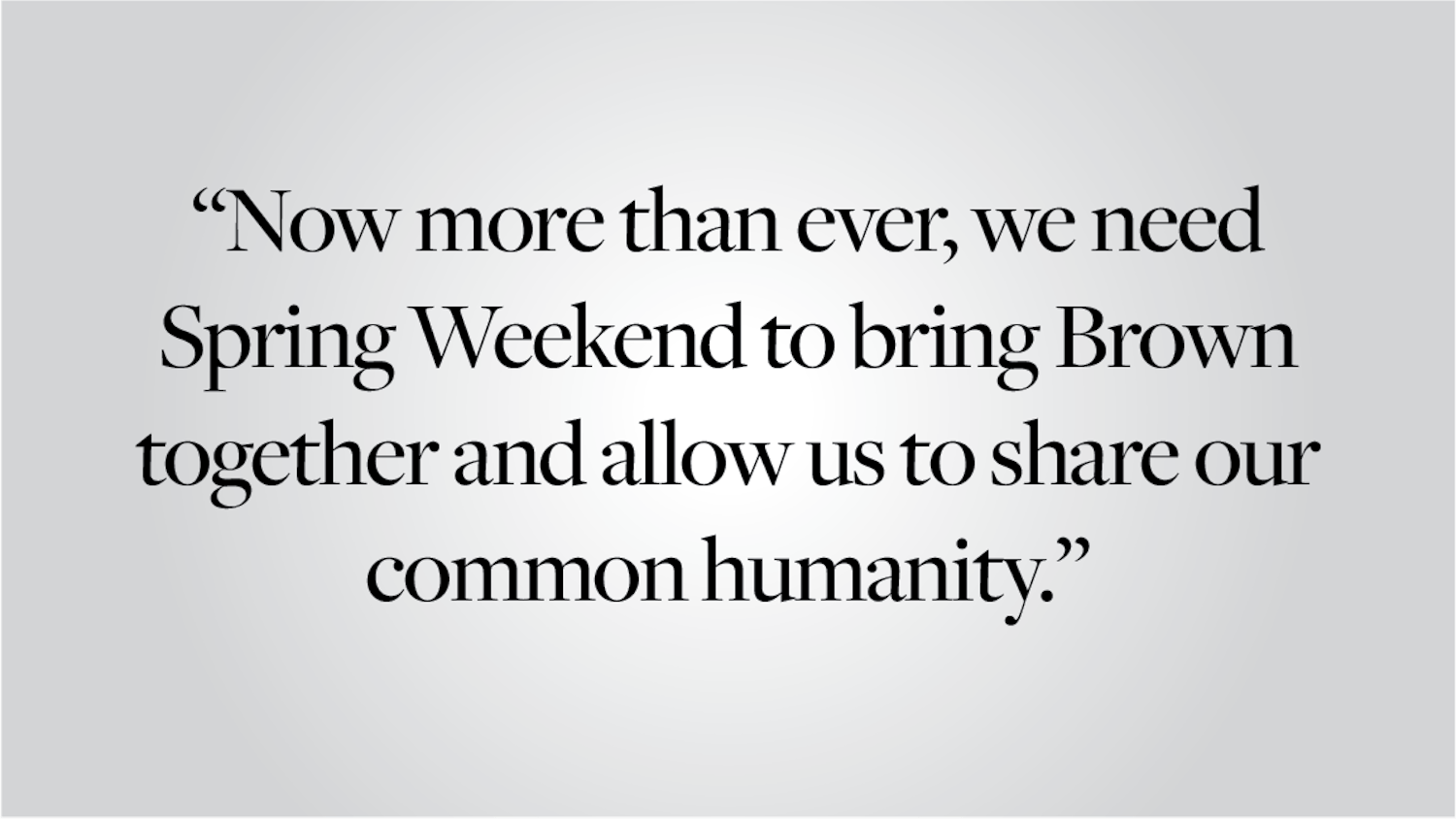Tuesday marked a milestone for many undergraduates at Brown. While most did not physically vote on Election Day, this election was the first time that many of us had the privilege and power of casting a ballot to decide the next President of the United States. This election carried special significance for many reasons, perhaps none more consequential than the 234,000 Americans who have lost their lives due to the coronavirus pandemic — which has been woefully mismanaged in this country by current leadership.
Understanding the grave significance of this election, many Brown students entered into politics through weekly phone banking, interning with political advocacy organizations and even taking leaves of absence from Brown to work for campaigns in battleground states. Inspired by the enthusiasm of Brown students behind this election, Brown College Democrats has worked to politically engage the campus community. We invited politicians and public servants from Rhode Island and across America to energize our membership, and we called voters across the country, made countless infographics to educate people on the candidates running and worked with Brown Votes to combat voter suppression. But now, with the final ballots cast, we have to ask ourselves: Where do we go from here?
The simple answer is forward. We cannot stop now. The issues that matter most to us and the people we love are constantly under siege, and it is imperative that we continue working to protect our values. However, it is important for us to acknowledge what this election means and how we got here as we chart our path forward. Our campus must reflect on what the nature of this election shows us about our country, especially given our status as an elite, predominantly white institution.
In 2016, Donald Trump’s victory came as a surprise to many as it contradicted preelection polling. Yet we now find ourselves in a similar situation. Joe Biden was consistently leading in the polls heading into Tuesday, but election night results only demonstrated a slight edge over Trump.
Unexpected divergence of actual results from the polls is not the only echo of 2016 we are seeing this year. Analysis of voter demographics from 2016 demonstrated this, as 62 percent of white men and 47 percent of white women voted for Trump, while minority groups preferred Clinton. While the official data has not yet been released for the 2020 election, early results suggest a similar pattern, as Trump continues to beat Biden among white voters, but trails among all other racial and ethnic minority groups. These results show that people in this country, specifically those with race and class privilege, continue to vote in their own self-interest, neglecting the good of our country.
These data also indicate that those most impacted by Trump’s policies over the past four years were not in favor of Trump’s presidency, which is devastating. Trump and, by extension, the Republican Party have failed to denounce white supremacy, implement effective climate policy with special considerations for environmental justice, recognize one’s right to choose and affirm the rights of the LGBTQ+ community. Only those unaffected by such policies can afford to vote for Trump, at the expense of marginalized communities.
It is also important to note that Biden’s victories in Michigan and Wisconsin and competitive races in Pennsylvania and Georgia can be largely attributed to Black voters in the major urban centers of each of these states. Yet, while Democrats continue to rely on Black voters to deliver key victories in each election, they fail to center the needs of the Black community and implement adequate policy at the local, state, and federal levels to remedy centuries of injustice and their various manifestations today.
Beyond reflecting on the work that remains to be done as a nation, we need to consider where we fall short as a University community. Many students at Brown utilize the Open Curriculum to take a broad array of courses and would consider themselves well versed in American politics as well as policy issues, but we often detach these academic discussions from their real impact on communities. We love to brag about how Brown is a very liberal community, but many of us choose to engage with the political process only when it is trending or during presidential elections. This behaviour is highly problematic and continues to disproportionately impact those most marginalized.
While Biden still has a clear path to victory and can reach 270 electoral votes with wins in the
remaining battleground states, this election reveals that as a country we are not bigger than hate. Van Jones said it best on election night: “There's a moral victory, and there's a political victory, and they're not the same thing ... We wanted to see a repudiation of this direction for the country. And the fact that it’s this close ... it hurts. It just hurts.”
As a Black woman and as President of Brown College Democrats, I agree. To see it be this close does hurt, but as we look forward and think about immediate next steps, we must remember this: Division will not cure itself, and we still have a lot of work to do, especially when it comes to racial justice.
So to Brown students confused on what to do next, I urge you to continue to stay engaged in the mainstream political process, as well as with grassroots movements. It is only through both of these avenues that we will truly bring about the change needed and properly leverage the privilege granted to us by our Brown degrees. Casting your ballot was step one. The next step is working to make civic engagement an integral part of who you are at all times, not just every four years.
Jasmine Powell '22 is president of Brown College Democrats. She can be reached at jasmine_powell@brown.edu. Please send responses to this opinion to letters@browndailyherald.com and op-eds to opinions@browndailyherald.com.

ADVERTISEMENT




